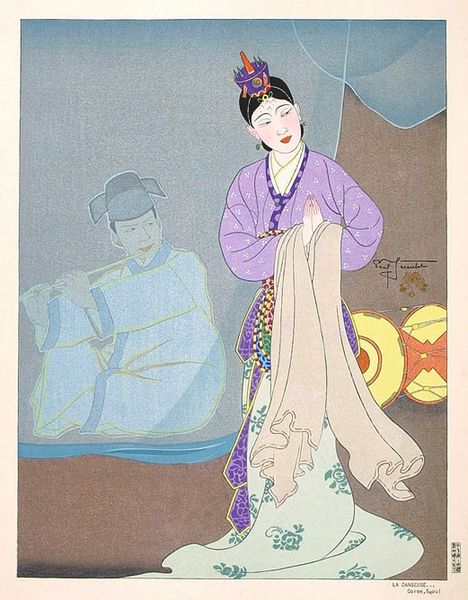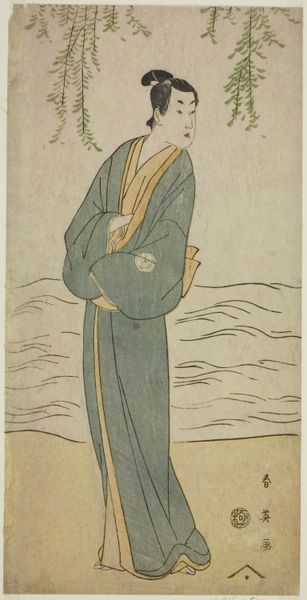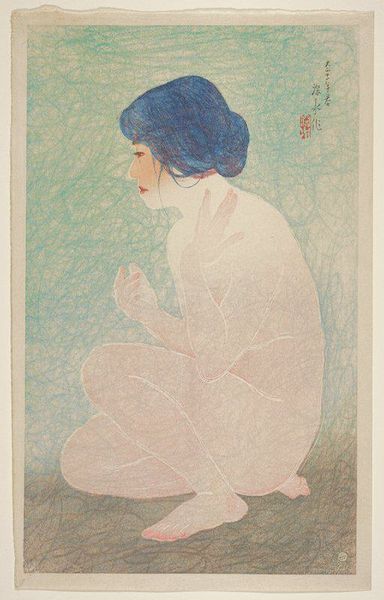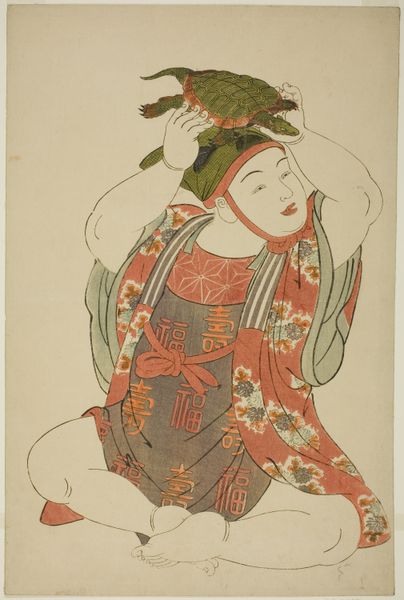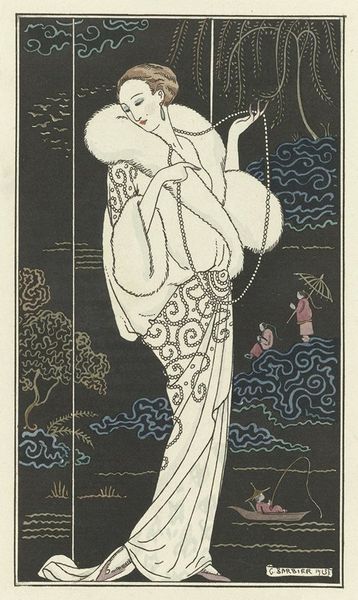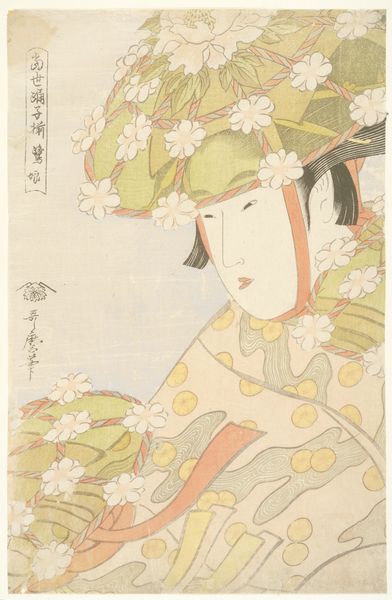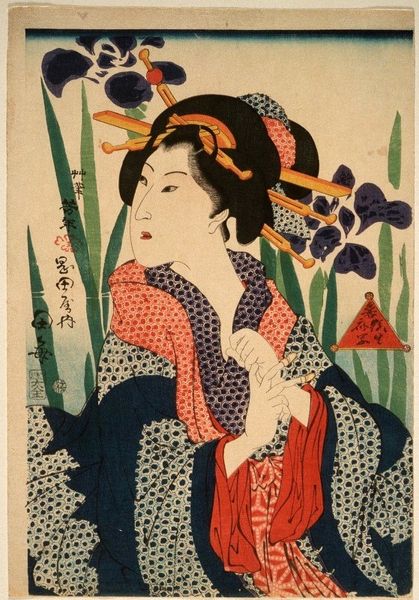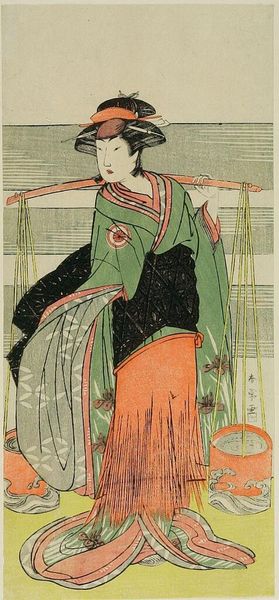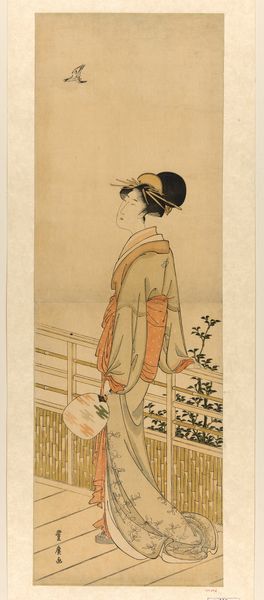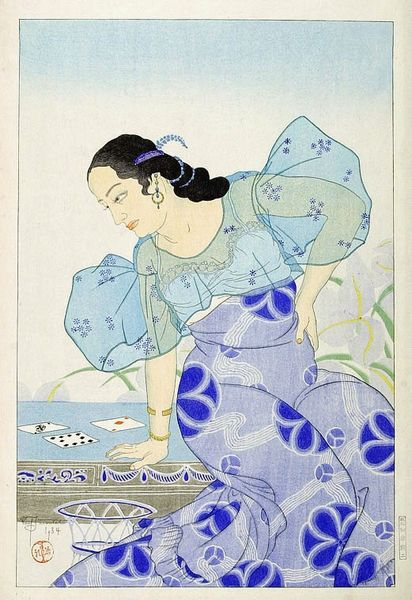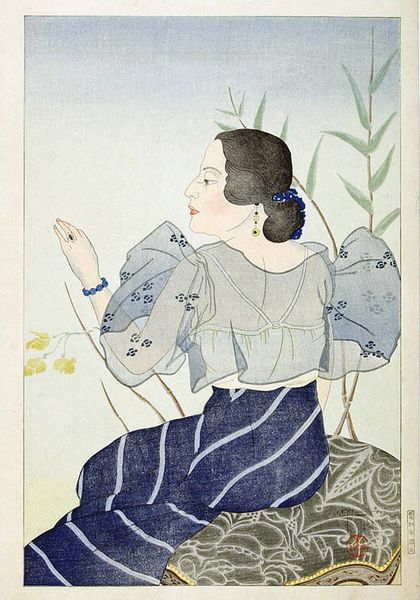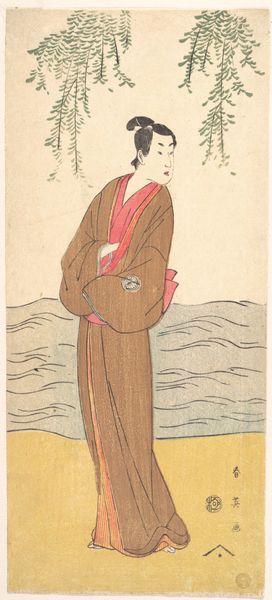
Le fils qui vient de perdre son père Corée-Séoul ( Son Who Just Lost His Father,Seoul, Korea) 1948
0:00
0:00
Copyright: Public domain Japan
Editor: This is Paul Jacoulet's "The Son Who Just Lost His Father, Seoul, Korea," created in 1948 using print and watercolor techniques. The figure's somber expression, framed by that stark white robe and distinctive hat, gives it such a weighty feeling. What strikes you most about this work? Curator: The date, 1948, is significant. Immediately after World War II and amidst the backdrop of the Korean War's prelude, this image isn’t just a portrait; it’s a reflection on loss within a specific socio-political context. How do you think Jacoulet's decision to portray this individual in traditional clothing impacts our understanding of grief? Editor: It feels deliberate, connecting personal sorrow to a larger cultural identity maybe? Instead of a universal depiction, it ties grief specifically to Korean experience at this moment. Curator: Precisely. And think about the role prints played historically—they democratized art. Creating a print allowed Jacoulet to disseminate this image widely, almost like a public declaration of mourning, forcing viewers to confront the emotional and societal impact of loss during that era. It is also crucial to note that the Ukiyo-e style connects this to the woodblock tradition. Editor: That makes me think about who got to see the original work versus the prints and where. It definitely layers another dimension onto its meaning. Curator: Absolutely. Art isn’t created in a vacuum. It’s a dialogue with history, politics, and the very institutions that display and interpret it. Where do you imagine the work was first displayed, and how might that reception differ from today's viewing? Editor: Probably Korea and other parts of Asia given the Ukiyo-e influence. This whole conversation has shifted my thinking from just individual sadness to a more public, politically charged sense of mourning. Thanks! Curator: My pleasure! Recognizing how art engages with cultural and historical narratives enriches our appreciation significantly.
Comments
No comments
Be the first to comment and join the conversation on the ultimate creative platform.
